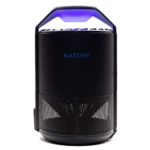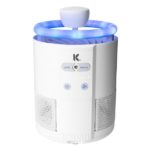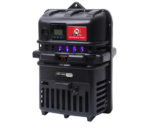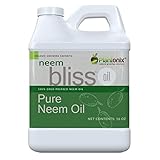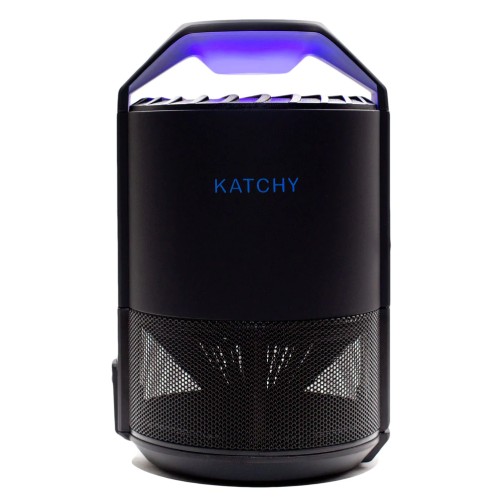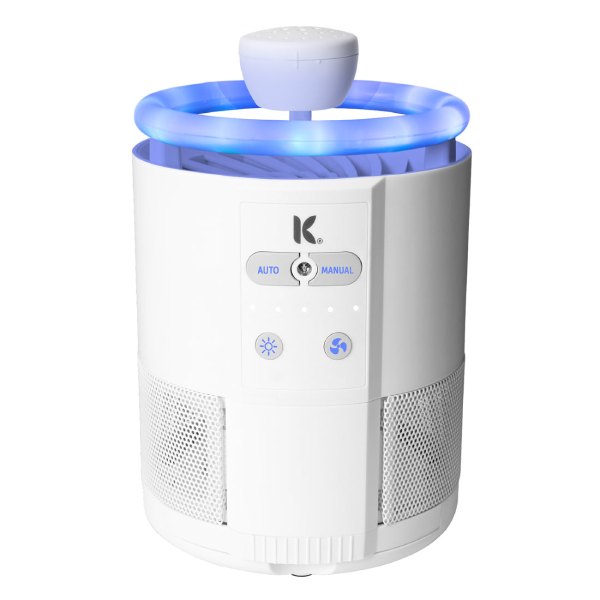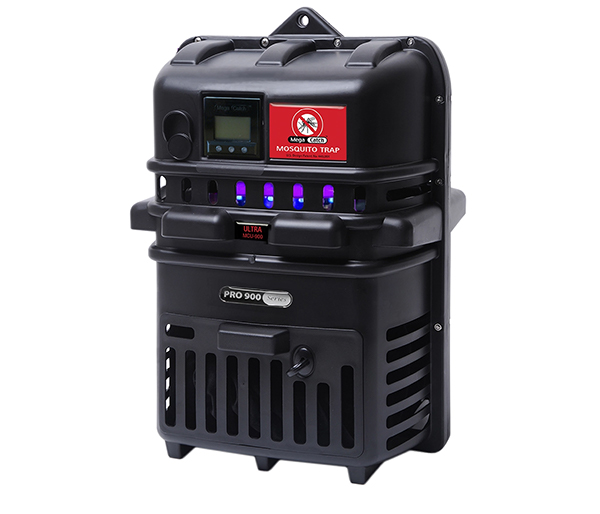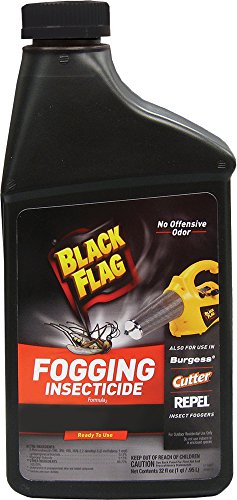There’s nothing quite like spending time outside, in your own backyard, enjoying the warmth and good weather of the summer months. It’s the perfect time for hosting gatherings of friends and family. Even just firing up the grill and eating outside with family.
But, there’s one summer plague that it may seem difficult to escape. Mosquitoes. If you live anywhere mosquitoes do, you’re familiar with the routine. Bug spray before leaving the house. Anti-itch cream in the bathroom.
There’s good news though. It doesn’t have to be that way. There are lots of options out there that will effectively manage the mosquito population in your yard.
We’ll cover more than just the best mosquito killer in this article. We’ll also go over effective interventions to reduce mosquito habitat around your home.
We’ll also discuss the mosquito life cycle so you can effectively intervene before you have swarms of mosquitoes around your home.
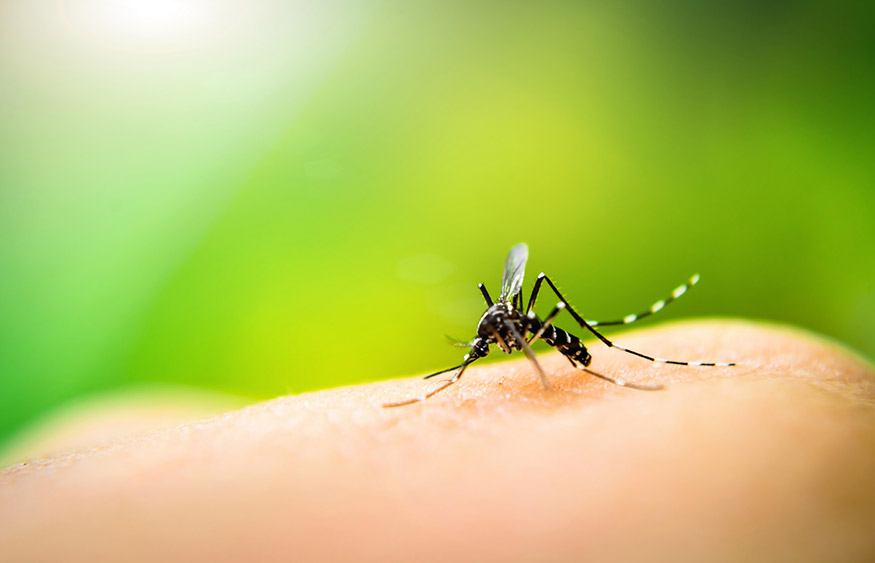
Mosquito Killer Comparison Table
Before You Buy a Mosquito Killer:
There are a few things to consider before you buy a mosquito killer. While mosquito killers can work to reduce the local population, they usually won’t eliminate the population or stop mosquitoes from breeding entirely.
You need to do more than just installing a mosquito killer to eliminate this pest.
Think this sounds like more work than it’s worth? While most of us are used to dealing with mosquitoes as a normal summer pest, they’re also an important disease vector.
It’s not a big deal to have a treat a little bug bite. Until that is, that bug bite gets you sick.
While you can protect yourself with bug sprays, that’s not going to protect other animals and people in your area. If you have pets, livestock, or live in a neighborhood with lots of kids, it’s important to perform mosquito mitigation.
Protecting your property protects the people and animals around you.
We will go into this in more detail now, but the short version of how to get rid of mosquitoes is:
- Remove standing water to reduce breeding locations
- Clean up the yard to reduce mosquito habitat
- Treat/filter any standing water that cant be removed
- Use a poison or mosquito trap to kill adult mosquitos
Breaking The Mosquito Life Cycle
One of the most important things you can do to reduce mosquito populations in your area is to break their life cycle. The fewer mosquitoes make it from the egg to reproduction, the fewer mosquitoes you’ll have to fight in the next generation.
Unfortunately, mosquitoes have a quick life cycle and will breed several generations in a single summer. So, if you aren’t effectively preventing them from breeding, you’re going to have a larger and larger population until Autumn ends the breeding cycle.
Mosquito Life Cycle
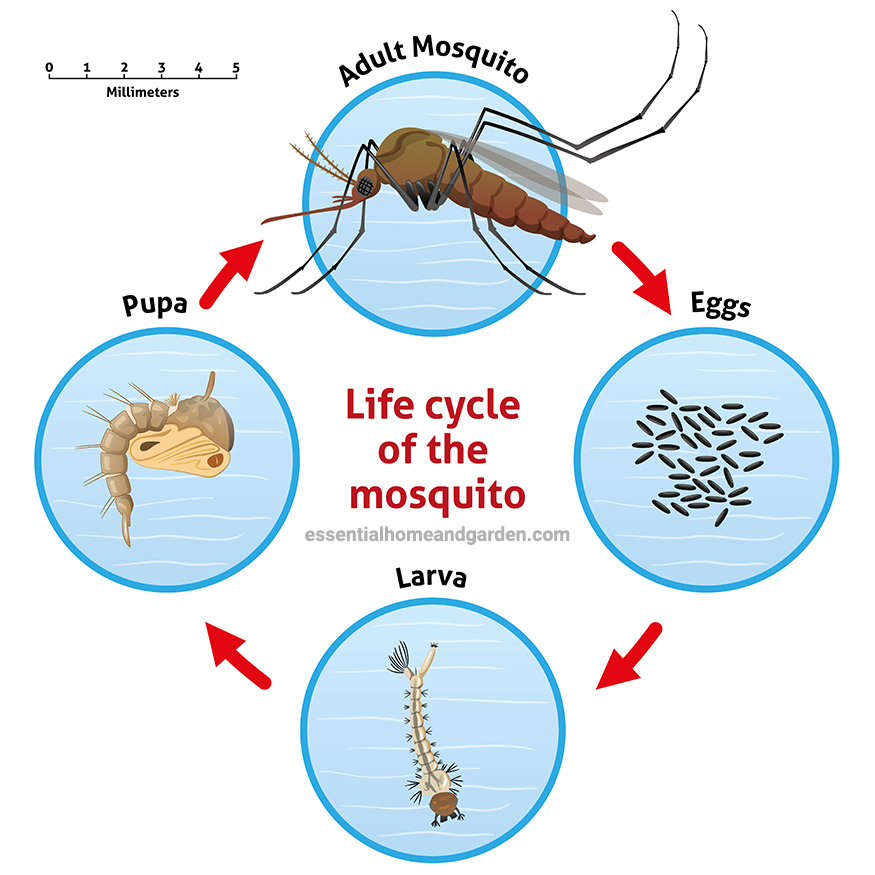
Before we talk about how you can break the life cycle of mosquitoes, you need to know what their life cycle is. Mosquitoes have a 4-stage life cycle, starting with eggs.
Mosquito Eggs
There are two basic types of mosquito eggs. Some species will lay eggs on standing water in small rafts. These eggs float on the surface until they enter the larval stage. Other species will lay individual eggs that sink into the water until they hatch.
Mosquito Larvae
The larval stage looks like little worms in the water, usually near the surface, and usually floating vertically instead of horizontally. These worms are only about a millimeter wide, and roughly a centimeter (1/3 of an inch) or two long.
The larval stage feeds on microorganisms in the water. There is plenty of food for mosquito larvae in tiny amounts of standing water. Almost any standing water can support several mosquito larvae.
Mosquito Pupae
After the larval stage comes the pupal stage. This is also completed in standing water, but the pupae aren’t much bigger than the larvae. This is a non-feeding stage, so they don’t need any resources other than the water itself.
Pupae bounce through the water a little as they twitch and tumble, moving with the light. This is probably the most recognizable stage before mosquitoes emerge as adults. They’re fairly active, and they’re easier to spot than either the egg or larval stages.
Adult Mosquitoes
The pupae will eventually open, allowing the adult mosquito to emerge. The mosquito will spend a little time resting on top of the water while its body finished unfolding and hardening. They’re old enough to begin breeding only a couple of days after emerging from the water.
Adult female mosquitoes will produce more eggs in their first brood than in later broods, anywhere between 50-500 depending on their habitat suitability, nutrition, and species.
Reproduction and Lifetime
They can go on to have as many as 10 broods in their lifetime, and most of the mosquitoes in each brood will also be female and capable of producing their own 10 broods.
There is wide variability in mosquito lifetimes, anywhere from 4-5 days, to a full month. Temperature can also influence life cycle since higher temperatures will allow the mosquitoes to mature and move through their whole life cycle faster.
When to Intervene To Prevent Mosquito Infestation
If you can effectively intervene in this life cycle and prevent mosquitoes from effectively breeding and producing additional broods, you’ll be able to reduce the mosquito population over time.
It’s important to intervene in the mosquito life cycle early. That way you have a smaller population, to begin with instead of fighting a losing battle with exponential mosquito population growth.
Start mosquito mitigation, whatever method you choose, as soon as it gets warm enough to support mosquito growth. Depending on where you live and the local species, that may be late spring or early summer.
At least, you should start mosquito mitigation as soon as you see an adult mosquito. Ideally, you should start mitigation before you see an adult.
There are many places you can intervene:
Ideally, reducing the amount of viable habitat prevents egg-laying in your area. But you can also kill mosquitoes at the egg and larval stages, trap and kill adult mosquitoes, or combine all three techniques.
Mosquito Breeding Spots – Remove Obvious Standing Water
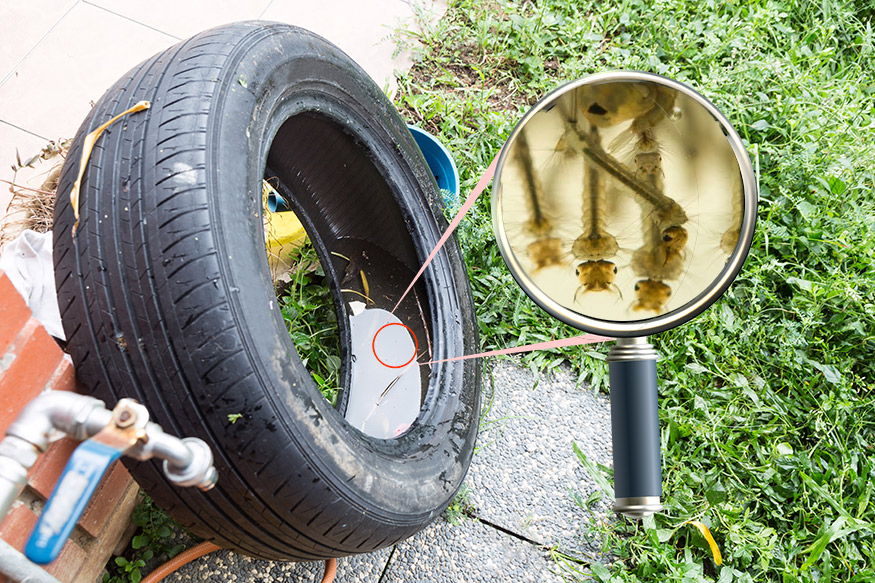
One of the first things you can do to tackle mosquito populations is to remove their breeding ground. Mosquitoes like smooth, stagnant water.
If you have empty pots, gardening trays, buckets, or open barrels, it’s important to turn them upside down so they can’t hold water, or to cover them so the mosquitoes can’t get in.
If you have a garden pond, it’s also important to install a filter or fountain. Either will provide enough current to make your pond less hospitable to mosquitoes. Koi ponds and other ponds with fish are less of an issue since the fish think that mosquito eggs, larvae, and pupae are tasty treats.
Fish will even eat the adults if they have an opportunity.
Standing water you can’t eliminate, like pet bowls, birdbaths, bee watering stations, and livestock watering troughs, should be emptied every few days.
If you can’t empty watering troughs, since that’s a lot of water, installing a filter or pump to create a current in the water will keep it cleaner and mosquito-free.
Mosquito Shelter Locations – Clean Up The Yard
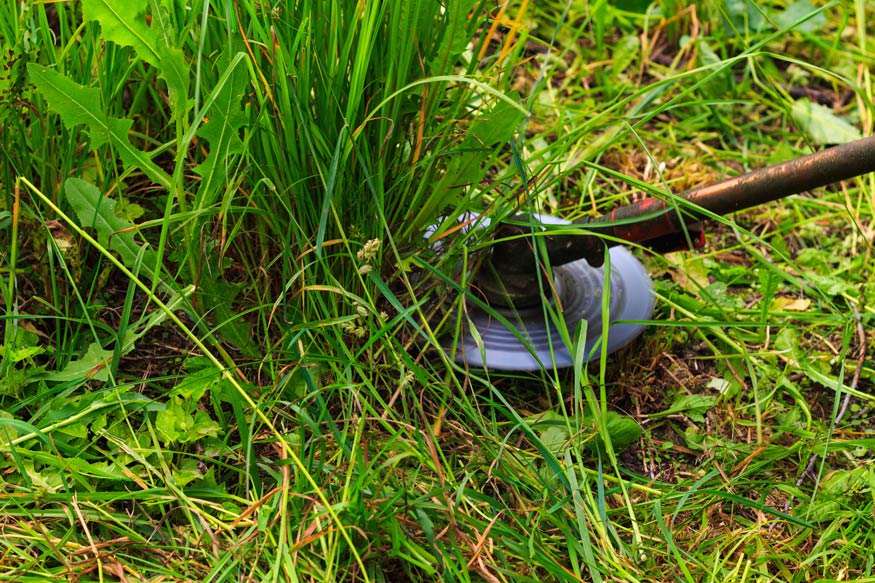
It’s not enough to address obvious sources of water. There are lots of other water sources in your yard that are so small they’re likely invisible to you. But the mosquitoes will find them.
Water also isn’t the only habitat type you need to address. Even if the mosquitoes can’t breed in or around your yard, they’ll still likely hang out if you have other suitable habitats for them.
Tall grasses, overgrown shrubs, and any shaded areas with damp soil can potentially be a habitat for adult mosquitoes throughout the day.
You probably won’t be able to eliminate all of these places, especially if you have a lot of trees, decorative grasses, or extensive landscaping. But there are things you can do to reduce habitat quantity and appeal.
Try to keep your grasses mowed and move the grass clippings to a compost pile or otherwise dispose of them quickly.
Trim and maintain shrubs and tall grasses, regularly. Try to limit your watering schedule. Only water when necessary and let the soil dry until it’s no longer damp to the touch before watering again.
Make sure you’re cleaning up leaf and pine litter regularly. Dry leaves, in particular, can hold enough water to act as a breeding ground for some species of mosquito.
We’ve already mentioned this, but it’s worth mentioning again. It’s important to build a habit of regularly cleaning out any standing water you can’t eliminate.
Large bodies of standing water like livestock troughs and ponds can be made less mosquito friendly with a filter, fountain, or pump that moves the water and creates a current.
Types of Mosquito Killers
Before we get into the types of mosquito viruses, let’s quickly sum up what we’ve already talked about. Mosquito killers are a great way to intervene in the mosquito life cycle, preventing mosquitoes from successfully breeding.
Landscaping and yard management are also important to reduce the number of mosquitoes calling your yard home.
In addition to mosquito killers, it’s important to reduce the number of breeding locations they can use. Standing water should be eliminated wherever possible. Filters, pumps, and other means of moving standing water can be added to any pools of water that can’t be eliminated.
Ideally, you should use a combination of different types of mosquito killers so that you’re interrupting the mosquito life cycle at different points. Killing larva may prevent the breeding that’s happening in your yard, but it won’t eliminate adult mosquitoes breeding elsewhere.
Killing adults, but not larva, will help reduce the number of pests flying around at once, but won’t reduce the population even if only one or two adult females escape.
Let’s look at the different types of mosquito killers.
Mosquito Larvicides
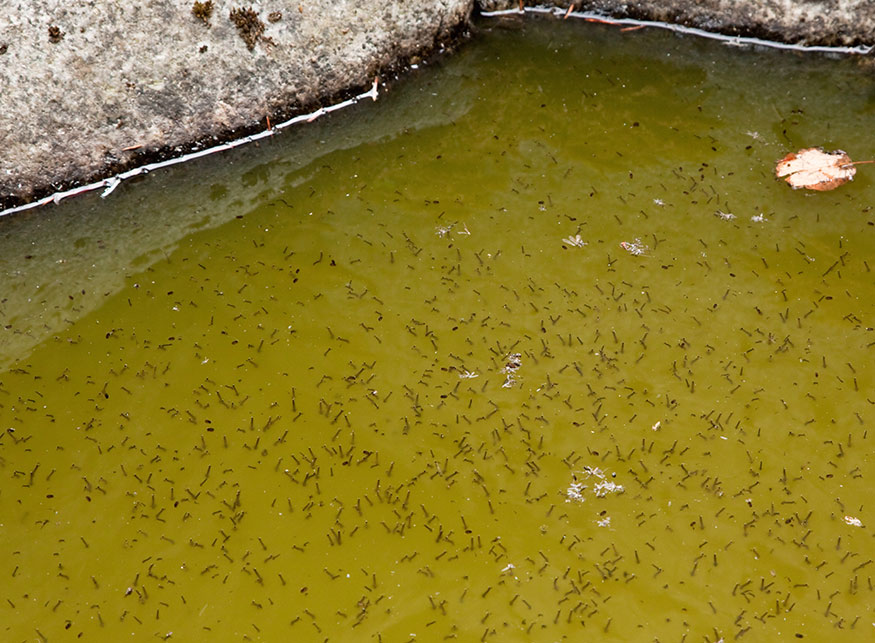
Mosquito larvicides are designed specifically to target the larval stage, preventing mosquitoes from making it to adulthood.
These are applied to standing water that might act as a breeding site for the mosquitoes.
Are Larvicides Safe?
Used properly, mosquito larvicides are designed not to hurt livestock, pets, or the environment. That means that they’ll kill the mosquitoes, but they won’t hurt other animals and insects that come in contact with the treated water.
Unfortunately, while mosquito larvicides are designed not to hurt other insects, that doesn’t mean that they won’t. So, if you enjoy having butterflies, ladybugs, bees, and other beneficial insects in your yard, it’s a good idea to limit where and how you use larvicides.
Importance of Following Use Directions:
It’s also important to pay close attention to the directions since misuse of these products can cause environmental damage. Depending on the type of larvicide, this may mean that it damages local plants, and animals, or that it travels up the food chain and affects mosquito predators on up.
That said, many larvicides are labeled safe for use around animals, meaning that they’re much less likely to cause harm to animals in the area even if you do accidentally use too much of the mosquito larvicide.
Where to Use Larvicides:
If you collect rainwater, you mustn’t use larvicides on any water that might be used as drinking water later.
They’re not recommended for use as a replacement for eliminating unnecessary standing water.
Good locations for larvicides are fountains, watering troughs and other watering locations for your livestock, drainage canals and gutters, and any other standing water that can’t be eliminated.
If you use larvicides on standing water that your kids might access, it’s important to tell them what you’re doing, and that they shouldn’t drink or play in that water.
Mosquito Lures/Traps
Mosquito lures and traps are some of the most common ways to reduce the mosquito population in a limited area.
Traps aren’t as effective for reducing mosquito populations over time, since none of them are 100% effective mosquito killer, but they can and do effectively eliminate adult mosquitoes that are seeking food.
Trap Requirements:
Depending on the type of trap, it may be entirely self-contained, require occasional maintenance or replacement, or require electricity via an AC outlet or extension cord.
The type(s) of trap you use depends quite a bit on how large an area you’re trying to protect. It’s a good idea to mix several different types of traps. Place traps anywhere you suspect mosquitoes will enter your property, including near any breeding areas in your yard.
Where to Put Your Traps:
Ideal placement will usually be upwind and about 30 feet away from people and animals. That’s an attempt to get the mosquitoes to target the trap before they target people.
One of the most common types of traps will release CO2 to mimic breath. CO2 is one of the things mosquitoes looking for a blood meal will home in on since it’s usually an indicator of a breathing animal.
A mosquito will approach the source of the CO2 and be trapped in a small net or container. Usually, the mosquito will then either drown or die of dehydration.
Do Mosquito Traps Affect Other Insect Populations?
This method of trapping mosquitoes doesn’t usually affect other non-pest insect populations since it only attracts insects looking for animals to feed on. Butterflies, bees, and beetles are unlikely to be affected.
It can’t prevent them from breeding elsewhere, since traps kill adult mosquitoes looking for a meal, no matter where they come from.
Mosquito Killer Sprays
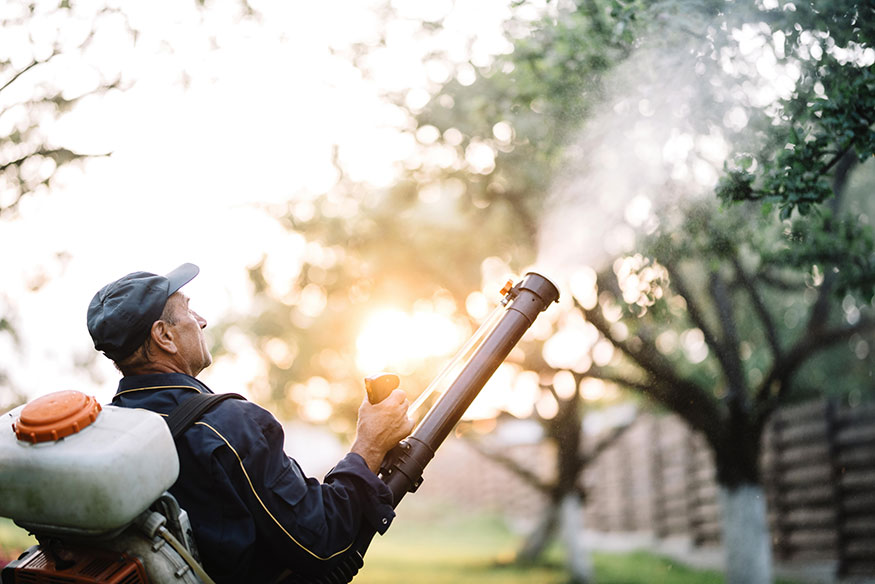
Mosquito sprays are distinct from the bug sprays you wear directly. These are designed to be sprayed over a large area, not on people, pets, or livestock.
There are lots of different types of mosquito and insect sprays, but for home use, we recommend that you stick to natural options like insecticidal soap and neem oil over chemical pesticides.
There are a few reasons for this, the main one being that chemical pesticides can be harmful to you, your family, and your animals if you’re exposed too quickly after treating your property.
It’s also difficult to avoid exposure. You’ll need protective clothing and equipment to avoid treated areas for hours or days after treatment, and to make sure water sources aren’t treated at the same time.
Insecticidal soaps, neem oil, and other natural alternatives are almost always less harmful than other pesticides, and they’re easier to avoid after treatment. Some, like neem oil, can be beneficial for your soil.
Neem Oil Sprays
Neem oil is a natural alternative to pesticides. It takes a very low concentration of the oil, 0.5-1% of the total solution, to effectively kill mosquitoes and other chewing and sucking insects.
That means it kills the insects that kill your garden and landscaping. It kills the insects that bite you and your animals. But it leaves most beneficial insects, like ladybugs, praying mantis, butterflies, bees, dragonflies, and fireflies alone.
Unlike chemical yard sprays, neem oil largely doesn’t contribute to the over-use of pesticides and the die-off of insects in human-occupied areas.
Neem oil interferes with normal hormone functions in the insects it targets. They’ll be unable to breed successfully, they won’t eat or sleep, and will fail to complete other life-sustaining tasks normally signaled by hormones.
It can take neem oil a few days to show its effectiveness. That’s because it takes time for a mosquito to begin dying. You can treat your property with neem oil once every two weeks, and should notice a considerable drop in pest species every treatment.
Insecticidal Soap
Insecticidal soap is another natural alternative to chemical sprays. It works by closing the air-pathways in the insects’ bodies. The insect will go about its business as normal but eventually suffocates.
It can take a couple of treatments for insecticidal soap to work since you must thoroughly cover the insect to kill it.
Insecticidal soaps are most effective on other pest insects, but it can help with mosquitoes if you have areas you know are good mosquito habitat. Treat those areas first if you’re targeting mosquitoes with the insecticidal soap.
Chemical Mosquito Sprays
If you need to use a chemical spray, which usually produces faster results but which can also damage the soil and plants in the area, there are lots of products available.
Options like Cutter Backyard spray, Ortho Bug-B-Gone, and Spectracide Triazicide, are all readily available and relatively easy to use.
It’s important with these, and all other chemical yard sprays, to use only as directed and as sparingly as possible.
Pay special attention to the directions regarding how long you should wait before allowing family members, pets, or livestock, back into the treated areas.
So while these sprays are an effective mosquito killer, they also have many side effects (both known and unknown) that are worth considering.
Mosquito Foggers
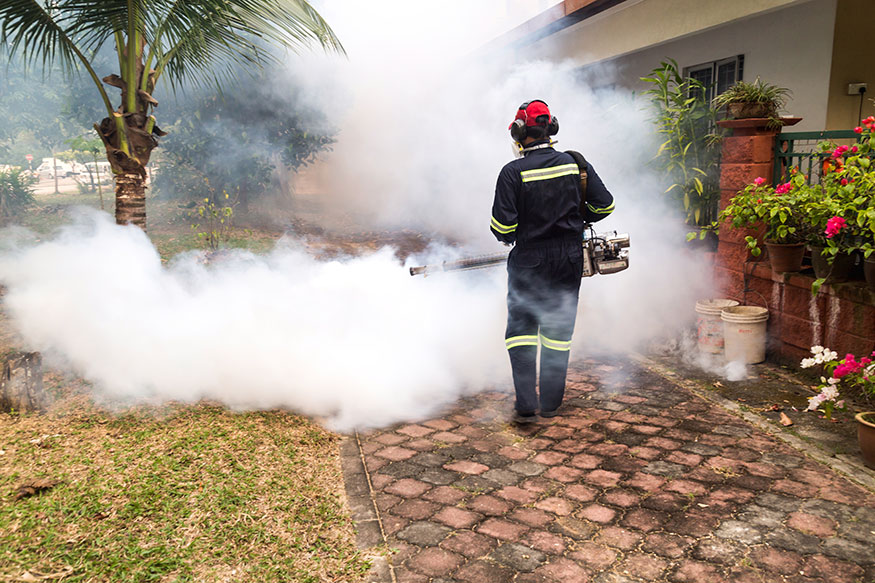
Another solution for adult mosquitoes is to purchase mosquito foggers. These spread small droplets of insecticide through the air, killing mosquitoes and other insects for the duration of their use. Small amounts of the insecticide may linger on leaves, shrubs, and other surfaces and remain effective for a short while after use.
These are usually indiscriminate insecticides, meaning they’ll kill any insects that come into contact with them.
Well-placed foggers are effective for about 72 hours. That makes them a good option for short-term use right before a party, wedding, or other outdoor event.
While they work best for the first 72 hours after fogging, you might see a significant reduction in insects for as much as two weeks after the treatment.
Unlike sprayers, which apply the insecticide to a targeted area, foggers are indiscriminate. They carry the chosen insecticide with the wind.
There are two types of foggers. Cold foggers use electricity to propel the insecticide. Thermal foggers use propane and don’t require an outlet or extension cord to operate.
Once again, these are probably more of a last resort to use as a mosquito killer.
Bug and Mosquito Zappers

The last option for mosquito killers are bug zappers. These are very effective on the mosquito population but may also attract other insects like moths, wasps, bees, flies, and others. Some of the susceptible insects are also pest species, some aren’t.
Bug zappers use UV light to attract the mosquitoes. They fly right in, straight into the wire mesh that surrounds the light.
That mesh carries a significantly higher voltage than the outlet used to power it, instantly killing the mosquito as soon as they make contact and complete a circuit with the mesh.
While these are an indiscriminate type of bug killer-they’re effective, easy to set up, and work well for reducing populations over time.
They work by reducing the population over time. So you won’t notice an immediate effect, but every mosquito you eliminate is one that can’t produce more mosquitoes.
Learn More: Outdoor lights that don’t attract bugs.
Mosquito Killer Reviews
We know that mosquitoes and other pest insects aren’t just an outdoor problem. It doesn’t take much to let insects in the house.
Depending on the screens on your home, it may even be possible for insects to get in every time you open a window!
Fortunately, there are safe and effective traps that you can use indoors as well as out.
The KATCHY indoor trap is perfect since it’s safe for pets and kids. Unlike fly tapes and other common traps, the KATCHY trap looks attractive and functional. You don’t need to advertise that you have an insect problem to take care of it.
It works best in low light and placed in the kitchen or near a waste bin. Between the UV light and the scent surrounding the trap, it will attract the insects quickly.
The Katchy Duo is compact enough to fit on the kitchen counter and packed with a ton of great, functional features.
This highly effective mosquito trap combines a scent attractant with a UV light to effectively pull in more bugs than your average trap. Once those nuisance flying insects get near the opening, the ultra-quiet fan sucks them into the sticky pad to keep them trapped.
But what truly sets this device apart is how easy and inexpensive it is to use.
For one, you don’t need to buy bait to load the scent attractant. Instead, the removable bait container uses a combination of apple cider vinegar and dish soap, both things that you likely already have in your kitchen.
The UV light’s auto-mode feature is also pretty convenient because it automatically detects darkness and turns the light on. This allows you to set and forget your trap without worrying about wasting electricity.
The Katchy Duo is just 7.5 inches tall and 5 inches wide. It is the perfect size for setting on the counter next to your fruit bowl or above your trashcan. One trap is enough to provide full coverage for rooms up to 320 square feet.
Best of all? You get all of these great features for an impressively affordable price.
The Mega Catch Pro 900 is designed to reduce populations of all the main biting insects, including mosquitoes, black flies, midges, and more. This trap comes ready to go, all you need to do is connect it to power.
If you’re looking for faster results, or have a particularly high population of biting insects, it might be worth adding a CO2 canister. This trap works with or without CO2, but you may see faster results using CO2 as an additional lure.
The Mega Catch Pro 900 has an effective radius of about 150 feet. Adding CO2 will increase the range slightly since insects will be attracted from however far away the CO2 travels.
It includes both a liquid catch and an air-catch net, its power supply, and an extension cord. You can operate this trap indoors when you’re not using the CO2 system, but it’s most effective outside.
Like most bug traps, it will take a while before you’ll have noticeable results from this system. It takes about 6-8 weeks for a single trap to reduce the local breeding population enough to intervene in the life cycle of the insects.
This is the grand daddy mosquito killer and a great investment if you need to cover a large area outdoors.
Neem oil is one of the better natural pesticides you can use in your yard and garden. It’s also a fungicide and will deal with mites as easily as insects.
This product isn’t quite ready-to-use since neem oil only works for about 24 hours once it’s mixed with water. But, you only need to use a small amount of neem oil in water to get an effective dose. A 1% mix of neem oil in water is enough for initial treatment, and .5% mixed in water works as a maintenance treatment.
Neem oil is good for your plants and soil as well, and only targets harmful insects.
Simply mix the desired amount with water, add to a spray bottle, and apply wherever necessary. Make sure to keep shaking the bottle as you spray.
Since neem oil interferes with the hormonal processes of harmful insects, it can take a few days through a couple of weeks to see the results. But, you don’t have to worry about causing unnecessary environmental damage or exposing your family to harmful chemicals when you use neem oil.
If you are looking for a truly organic mosquito killer then neem oil is worth a try.
The Plantonix Cold pressed neem oil is available from Amazon.
If you’re looking for a good chemical spray that works fast and keeps working for a long time, this may be the right product for you.
Summit Mosquito and Gnat Barrier kills pest species on contact. After spraying your lawn and property, it continues to be active and effective for 4 weeks. It comes packaged in its own sprayer, so you don’t need any additional equipment to treat your property.
You can also use this to spray fencing and anything else that insects might land on or shelter near.
One package can cover 10,000 sq. ft, perfect for larger properties or several cost-effective treatments of smaller yards.
The Summit Mosquito and Gnat Barrier is available from Amazon.
This small bug zapper is an effective long-term solution that operates at low-cost and kills several pest species, including mosquitoes.
This is one of the cheapest long-term solutions and can be used year-round. While it’s only going to kill insects spring-autumn in most places, it doubles as a security light in other seasons.
Since this light has a 1-acre radius, it works well to reduce populations in the long term. By reducing the breeding adult population, it also interferes with the life cycle of the mosquitoes. You’ll see smaller and smaller generations of mosquitoes the longer this bug zapper is in use.
It also has an optional additional attractant, which will increase the immediate results from the zapper.
It’s clog-free, requires almost no maintenance, and features UV bulbs that are easy to replace.
Best Cold Mosquito Fogger
Black Flag 190107 Electric Mosquito Fogger

Key Features
- Perfect for smaller properties that need to be treated quickly
- Some product flexibility and choice
- Safe for family and pets
- Perfect for treating before parties and other events
- Best for locations with easy electric access throughout the whole property.
Just as fast and effective as a propane fogger, Black Flag’s electric fogger works well for treating large and small areas. It’s perfect to use in preparation for events, accepts a reasonable range of different insecticides so you can tailor your product to your needs, and is simple enough for anyone to use.
Like a propane thermal fogger, the treatment area is ready for people and pets as soon as the fog itself has dispersed.
The effective time of the insecticide varies based on what product you use, but foggers are generally rated to be effective for 6 hours of active insecticide action, followed by up to 2 weeks of reduced population.
The Black Flag 190107 Electric Insect Fogger is available from Amazon.
This insecticide is one of the better ones available for foggers, and it’s suitable for both the Black Flag fogger and the Burgess fogger we’ve already covered on this list.
The important part with a good insecticide for a fogger is that it disperses well and forms small enough droplets to be effective. This one works well in part because it can achieve droplets up to 7 times smaller than the average water droplets found in mist.
It can produce a mist so fine that it’s hard to see.
It usually takes less than 5 minutes for this fog to disperse, and you can treat a huge area quickly.
In addition to killing insects who come into direct contact with the insecticide, it also repels insects from re-entering the immediate area.
1 quart of product treats a full acre of land.
The Black Flag 190255 Flying Insect Killer is available from Amazon.
Best Mosquito Larvicide
Summit Responsible Solutions Mosquito Bits

Key Features
- Suitable for household use as well as on farming operations
- Biologically sound targets only mosquito larvae and gnats
- Treats a large amount of water or soil with a very small amount of pellet
- Safe for use in areas accessed by wildlife, pets, and other animals
This is the only mosquito killer on our list that targets something other than the adult life stage of mosquitoes. But, larvicides are an incredibly important part of reducing the number of mosquitoes in any given area.
This larvicide takes only 1tsp of pellets to treat 25sq. ft. of standing water. It takes a very small amount to effectively treat rain barrels, ponds, and other standing water and should be used with care.
But, since it prevents breeding in the area, this is an especially effective treatment combined with a spray or trap that also eliminates the adult population.
It’s suitable for intermittent treatments, quickly eliminating the entire mosquito breeding population in standing water. But, this is also one of the few larvicides that are suitable to sprinkle on dirt and fallen leaves.
Since ordinary yard waste can be an attractant and breeding area for some mosquitoes, that means that this larvicide will be more effective than varieties that can only be used to treat the water on your property.
Also designed to treat gnat fungus, this larvicide is EPA approved for use in all 50 states and is suitable for use in farming operations to reduce mosquito populations.
The Summit Responsible Solutions Mosquito Bits is available from Amazon.
Other Brands of Mosquito Traps and Killers
So what about those other brands of mosquito killers you have seen ads for?
Purei Mosquito Trap
This seems to be one of many cheap trap types being released onto the market at the moment. I haven’t tried it for myself but there is no evidence or genuine Purei Mosquito Trap reviews that show it actually works.
bazoli mosquito trap
The Bazoli mosquito trap is almost identical to the Purei trap and once again I would probably steer clear of it until you have seen proof of some unbiased Bazoli Mosquito trap reviews.
FAQ
Does a Bug Zapper Kill Mosquitoes?
Yes, a bug zapper kills mosquitos. They usually use ultraviolet light to draw in the mosquitos, which are then killed by an electrical charge.
Are Mosquitoes Attracted to UV Light?
Yes, mosquitos are attracted to UV light. This method is used by many of the top mosquito killers.
Are Mosquito Killers Dangerous for People?
This depends on the type of mosquito killer being used and if the manufacturer’s instructions have been followed.
Devices that use electricity to kill bugs can be dangerous to people if not placed in a safe location.
Human contact with poisons should be kept to a minimum where possible.
The Wrap Up
While there are a lot of different treatment options on this list, including a variety of chemical sprays and foggers, our top two picks have to be the Summit Responsible Solutions Mosquito Bits and the Flowtron BK-40D Electronic Insect Killer.
Both of these options work best in combination, addressing both the larval and the adult phases of mosquito life. They’re also both environmentally friendly, affordable, and suitable for treating relatively large areas effectively and cheaply.
However, if you’re looking for a faster solution and intervention, all of the other mosquito killers on this list are effective, safe, and easy to use.
May you have a mosquito-free summer!
